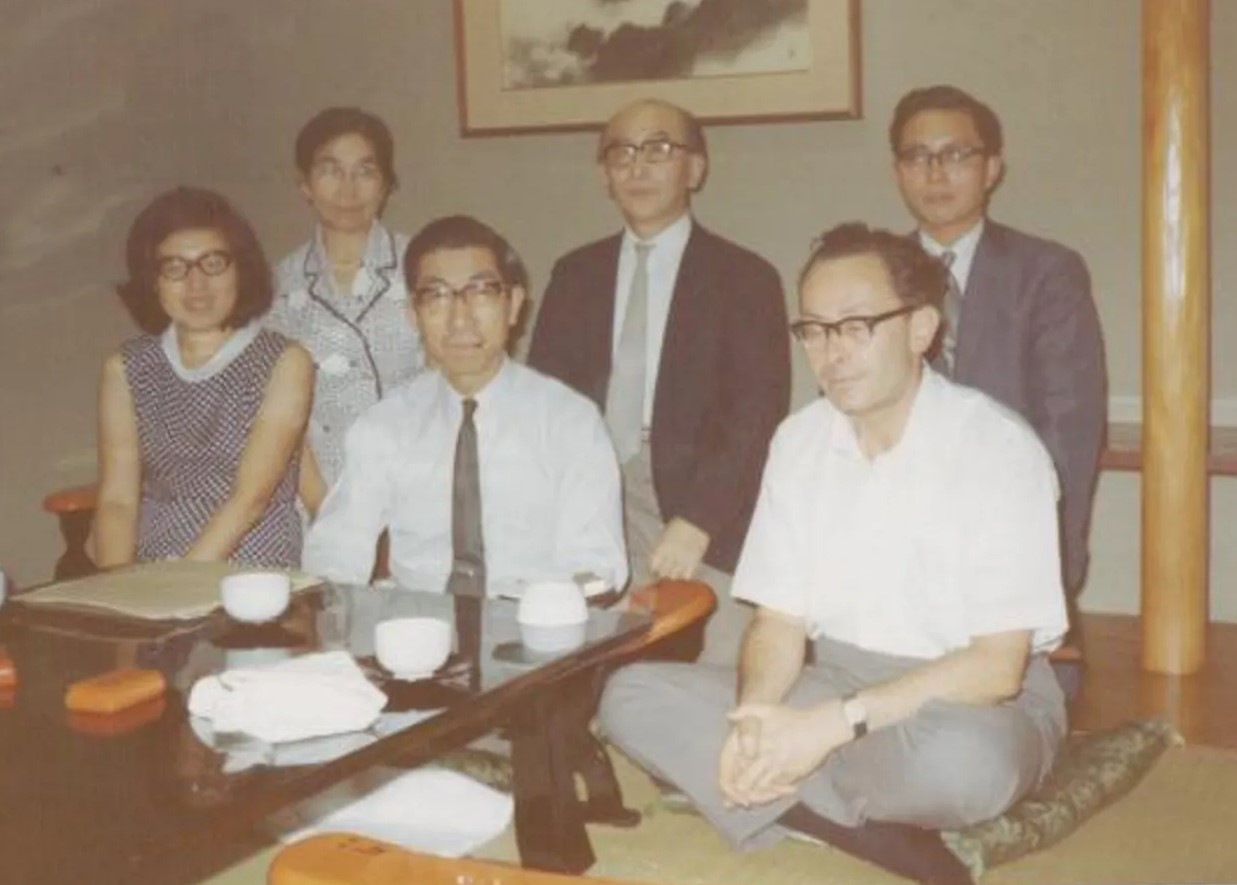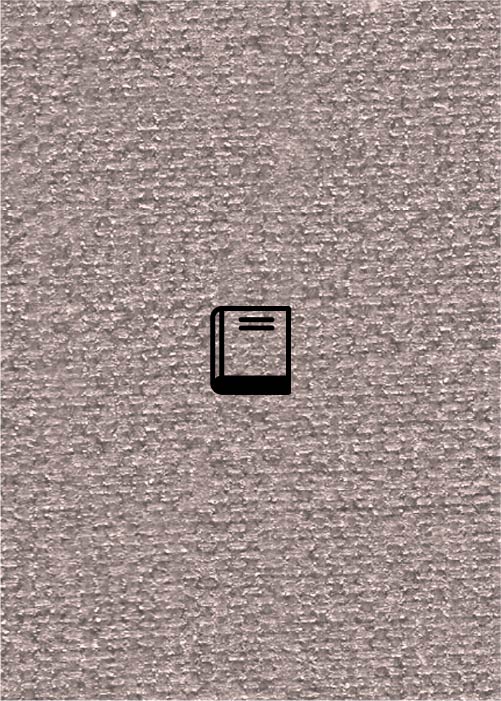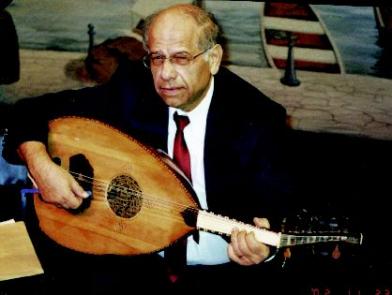Dr. Ury Eppstein, one of the earlier scholars associated with the Jewish Music Research Centre and its academic secretary (ca. 1967-1970), passed away on February 11, 2025.
Eppstein was born in 1925 in Saarbrücken, Germany. As many German Jews following the rise of the National-Socialist regime, his family chose to immigrate to British Mandate Palestine in 1935. He completed high school in Tel Aviv. After his release from military service, he worked as a radio drama editor and as editor of publications at the Jewish Agency, while commencing his piano studies at the Rubin Academy of Music (today the Jerusalem Academy of Music and Dance).
In 1958 his career took a turn that would leave a mark on the rest of his life. He went to Japan on a government scholarship to study Japanese culture, specializing in Japanese music at the Tokyo University of the Arts. During his stay in Tokyo (1959-1963) he was appointed as the first Hebrew lecturer at the University as part of the initiative of Takahito, Prince Mikasa, the youngest brother of Emperor Hirohito, to develop Middle Eastern and Semitic Languages’ studies at an academic level in Japan. Moreover, the Prince himself attended Eppstein’s class fostering what became a long-term relation. At the request of the Prince, Eppstein addressed and treated him like any other person. “Prince Mikasa was the only one who made sure to complete all of his homework assignments,” Eppstein remarked in a 2015 feature by Sarit Shai published in the daily Haaretz on the occasion of the prince’s death at the age on 100, the same age Eppstein reached.

Ury Eppstein seated next to Takahito, Prince Mikasa, Tokyo, ca. 1962.
Upon his return to Israel in 1963 Eppstein taught Japanese music, theater and culture at Tel Aviv University (1972-1977) and occasionally at the Hebrew University of Jerusalem. He completed his doctorate on Japanese music at Tel Aviv University in 1984 with a dissertation on the turn of Japan to Western music during the Meiji Era. The dissertation appeared as a book under the title The Beginnings of Western Music in Meiji Era Japan (Lewiston, N.Y.: E. Mellen Press, 1994). For a list of Eppstein’s publications on music in Japan, see here. In recognition of his contributions to the advancement of Israel–Japan relations, he was awarded the Order of the Rising Sun by the Emperor of Japan in 1989.
In addition to his academic career, Eppstein was the music critic of The Jerusalem Post for more than four decades as well as a presenter of music programs on Kol Israel (Israeli radio). He also contributed entries on music and composers from Israel for the New Grove Dictionary of Music and Musicians (today embedded in Oxford Music Online).
Dr. Eppstein was involved in the activities of the JMRC during its early years, contributing to its projects as editor and carrying out field recordings. Eppstein participated in the conception of the eventually acclaimed JMRC series Anthology of Music Traditions in Israel and participated in the production of its first title, the LP Hassidic tunes of dancing and rejoicing (1976). However, his own major ethnographic contribution consisted of a series of recordings of the churches of Jerusalem. Only two limited selections of these recordings were ever released to the public. One was published as a long-play by RCA Records Israel, titled Nuns of Gethsemane Sing Russian Orthodox Prayer Chants, a rare recording that can be heard now at the Sound Archive of the National Library of Israel. The second album, titled Voices of Jerusalem: Eastern Church Music, was published in 2006 by the German label Largo and can be found now in the catalogue of UBM Records (Berlin). By dedicating efforts to the preservation of these Christian musical traditions within the framework of the JMRC, Eppstein promoted a dialogic and interdenominational vision that was only very partially fulfilled. The fact that the JMRC recordings’ label is called Anthology of Music Traditions in Israel and not Anthology of Jewish Music Traditions (what it eventually became) owes much to this original inclusive approach of Dr. Ury Eppstein.
Eppstein was also one of the producers and presenters of a legendary series of midday encounters open to the public held at the room of the Sound Archives (aka “Phonoteka”) on the second floor of the extinct Jewish National and University Library (now National Library of Israel), titled Ha’azanah be-tzavta (roughly translated as “Collective Listening”). In these programs, live performances and field recordings were interwoven with explanations by the JMRC scholars. Eppstein himself presented in this framework music from Japan and China. The events were rarely recorded in full. The musical excerpts of music from Japan played by Eppstein on February 15, 1972, can be heard here. You can hear the voice of Ury Eppstein introducing JMRC scholar Prof. André Hajdu on April 11, 1972 at the opening of an illuminating encounter with the renowned clarinetist Giora Feidman titled “The Hasidic Nign in its New Metamorphoses.” This recording is a unique document of the early stages of Feidman’s “[re]turn” from being a classical musician to what he then called “Jewish Soul Music,” i.e. the klezmer and Hasidic musical heritage of his ancestors.






